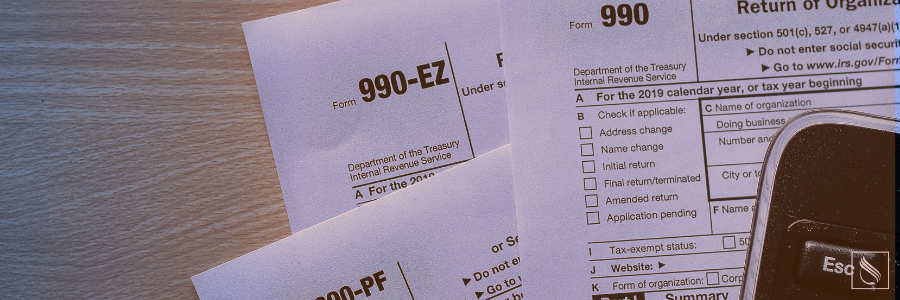Beyond the traditional fundraising, churches and schools often seek innovative ways to generate more income to further their ministries. Such moneymaking business opportunities may not always reveal the hidden tax traps or other pitfalls that could prove to be more trouble than they are worth.
Being tax exempt entities does not prohibit our ministries from such opportunities, Still, Federal tax law significantly regulates them. At the risk of oversimplifying a complex set of tax laws and regulations, let’s take a look at some basic rules and ideas how to evaluate and manage them.Unrelated Business Income Tax
These special rules for ministries, otherwise exempt from income taxes on their ministry-related income, are commonly referred to as Unrelated Business Income Tax, (UBIT). Basically, the tax law requires such income generated from an unrelated business operated by a tax-exempt organization be taxed on the same basis, or rate, as a commercial business.But these rules can be a challenge to understand with the tax jargon and twisted exceptions within exceptions. The best advice is to get expert tax advice from a qualified tax professional who is experienced in tax exempt law when considering such opportunities.
Initially, consider these basic rules of thumb. The key word is “unrelated.” Any activity generating income that is unrelated, or not substantially related to the reasons your ministry is exempt from taxes, potentially comes under this tax law.
Additionally, it would need to be an ongoing business, or what would be considered a for-profit commercial activity, if not operated by the tax-exempt entity. An important distinction in determining if a source of income might fall within these rules is to consider the primary purpose of the activity. Suppose the primary or even a significant reason to engage in such a venture is to make money. In that case, it could fall under UBIT.
As I hinted above, there are exceptions upon exceptions that can make this a bit confusing. For example, a school operating a retail bakery shop selling baked goods to the community would be subject to UBIT. It’s a regular business like any other bakery. It is not likely to be fundamentally related to education or operating a school. It does not matter that the school puts the profits of the bakery to good use for otherwise tax-exempt educational programs. The important distinction is how the income is generated, not how the profits are used, that makes it taxable.
Compare that bakery business to an old-fashioned church bake sale. These are typically held once in a while, with volunteers selling donated baked goods to raise money. For example, parents may use this to generate funds for the Pathfinders’ camporee trip. It may sound like a similar activity, selling baked goods to make money. However, that comparison reveals three common exceptions to UBIT.
The church bake sale is not an ongoing business operation, but rather an occasional fundraiser. The church bake sale is run entirely by volunteers and not with paid employees running the business. And third, it is sells donated baked goods and is not reselling baked goods purchased wholesale or made by its employees. Each of those three facts is potentially an exception sufficient to take that income-producing activity outside of UBIT.
Rental Income
Another significant exception from UBIT is rental income. Being a landlord renting property to a tenant sounds like it may be unrelated to a tax-exempt ministry. The good news is that income from renting out all or part of a building or the extra land to the local farmer can generally be excluded from UBIT.There are, however, exceptions to this exception to the general rule of UBIT. It only applies to the bare rental of real property–land, buildings, or space within buildings. The rental of equipment isn’t included. And it doesn’t include income from extra services provided in addition to the rental of the property. That could include additional charges for extra security or technicians to run the audio/visual system, for example. The income from those extras would be taxable under UBIT.
The most significant exception to the general rule for rental income is if any outstanding debt is incurred to purchase the property being rented. The tax would be in proportion to the indebtedness. That requires some ongoing accounting adjustments over time to determine what percentage of the rental income is taxable. Also, the loan source can make a difference in whether or not it would be taxable income. That’s where it would be essential to get some professional tax counsel.
Too Much Income
Can there be too much unrelated income that could jeopardize the tax-exempt status of your organization? The answer is yes. Too much revenue can result in revocation of exempt status by the IRS. Unfortunately, there is no “bright line” test to tell how much unrelated income is too much. You should be concerned when the unrelated activity starts to eclipse the exempt ministry activities or revenue. Is the organization a ministry that does a bit of business or a business that does a bit of ministry?Unrelated business activity will also require additional resources to meet the increased and quite different accounting and tax compliance requirements. This new tax reporting is also apt to invite heightened IRS scrutiny. This could be more than your organization is accustomed to since churches and most church entities are not required to report on their finances and activities, as do most tax-exempt organizations.
Finally, there is the matter of various state and local laws that need to be considered when operating a for-profit business. A significant state law to consider carefully is the impact on property tax exemption, which results from engaging in unrelated non-exempt business activity. This even applies to rental income that may be excluded from UBIT. Most state property tax exemptions are based on the property’s use, not merely who owns it. An exempt property must be used, usually exclusively or predominantly, for a defined exempt purpose. Not doing so could result in loss, in whole or in part, of the property tax exemption.
It is understandable why ministries seek to develop additional streams of revenue to advance their mission. However, the words of Jesus recorded in Luke 14:28 come to mind. Before you start, first sit down and consider the cost.
References
Image Credit: iStock/Dean R Specker


